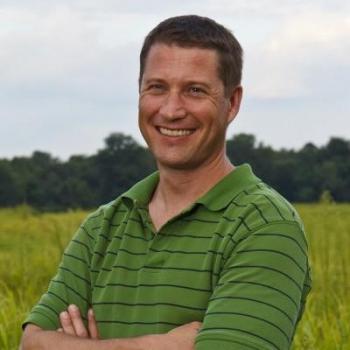The University of Massachusetts Amherst has named Clem Clay as director of the UMass Extension Agriculture Program, a 110-year old educational outreach program that serves farmers, landscape and turf professionals, fruit growers, arborists, nursery owners, flower growers, service providers, public agencies, non-profit organizations and businesses.
Clay officially takes the reins of the program on Sept. 30, having most recently served as executive director of Grow Food Northampton, a non-profit dedicated to building a sustainable and fair local food system in the Northampton region. Previously, he spent 10 years as Connecticut River Program Director for the Trust for Public Lands, where he protected over 400 acres of farmland, led the effort to establish the Fort River Division of the Conte National Wildlife Refuge and produced the landmark 2006 report, “Conserving the Heart of New England.”
A recipient of a master’s degree in public policy from UMass Amherst, Clay grew up on a Vermont farm and earned a bachelor’s degree in soil science from the University of California Berkeley.
The UMass Extension Agriculture Program has a long, proud history of support for farming in Massachusetts. Among the first efforts of cooperative extension in the Commonwealth, the Massachusetts Agricultural College, now UMass Amherst, began providing education, technical assistance and information to farmers in 1909. The program currently has a staff of professional agricultural educators who provide a pipeline for non-biased research and techniques to reach those who can put them to immediate practical use. In addition, Extension agricultural educators collaborate with UMass faculty in several departments, including the Stockbridge School of Agriculture.
“I am confident that Clem Clay will help lead and manage our Agriculture Program to the benefit of all who value the local food, open space, jobs and community character provided by agriculture in the Commonwealth,” said Jody Jellison, assistant vice chancellor for agricultural research and engagement, and director of the UMass Center for Agriculture, Food and the Environment and UMass Extension. “I believe that the state’s agricultural and commercial horticulture communities will continue to benefit from the work of our educational staff and faculty under his leadership.”
